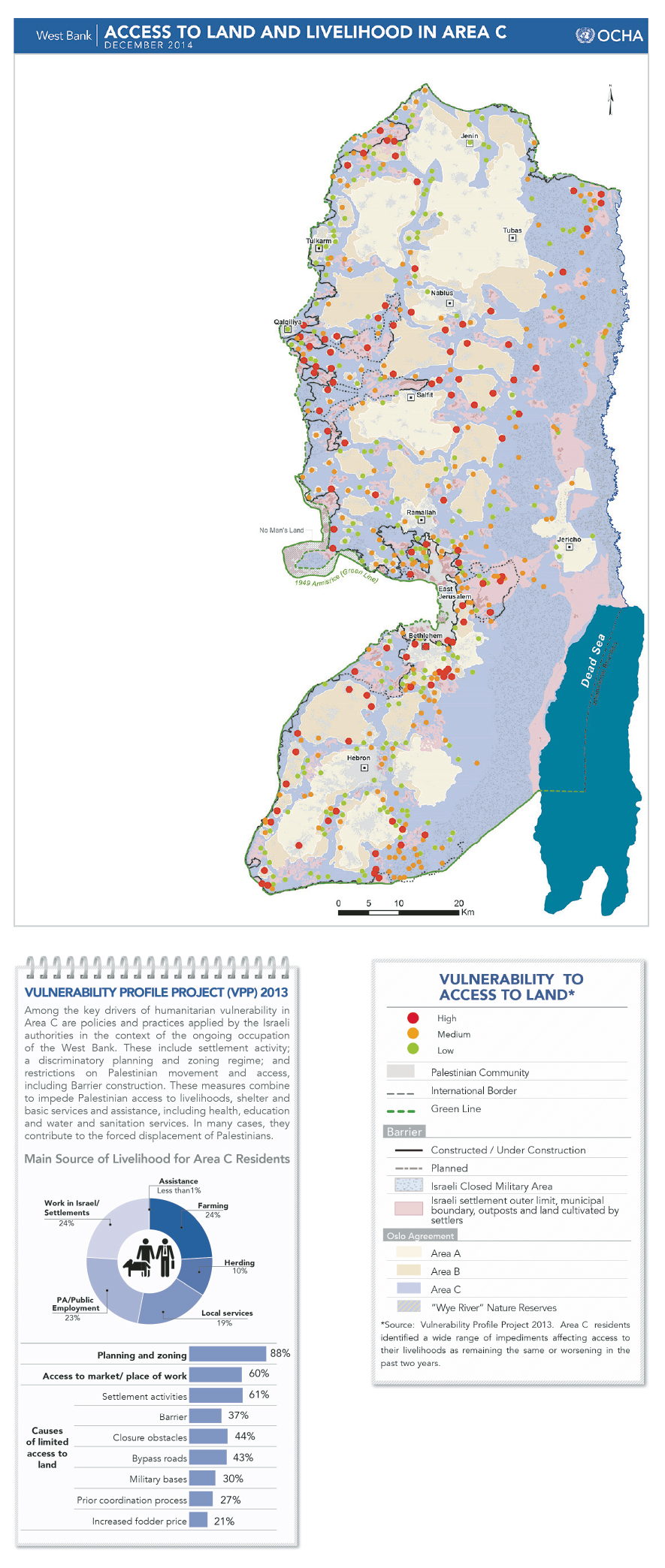 The village Kafr Qaddum has been badly affected by the Israeli settlement Qedumin that recently cut off the village’s main road. Now, all Palestinians, even ambulances, must take a very long detour to reach Nablus. Most villagers are olive farmers and depend on the olive harvest as a source of income. Their olive groves with 15,000 trees owned by 80-90 families are close to the settlement and thus located in Area C, under full Israeli control. They are off-limits to farmers for most of the year. Access is allowed only during olive harvest and only with Israeli-issued permits. The army has also closed agricultural roads leading to the fields; they can only be accessed by foot and olives must be transported to the village using donkeys. This year, farmers were granted permits to pick for six days in areas in the west of the village. With 10,000 trees, this meant that only 60% of the olives were picked, a significant economic loss to the farmers. In the eastern area, permission was given for two days. But due to bad weather on one of them, only 20% of the olives were picked there. Every year, at least 50% of the olives cannot be harvested. Farmers bring as much help as they can, but non-family members were refused by the soldiers: they are not owners of the land. In fact, soldiers responded with bullets and stun grenades if anyone tried to access. Any farmer who invited international volunteers to pick (they also report on human rights abuses) was punished by being prohibited to pick olives at all. Other farmers were granted very short day-permits (8.30am to 3pm), generally not on consecutive days, and certainly not on Fridays or Saturdays when children are off school and parents off work. On some days, the army stopped the farmers from work at noon without providing any justification.
The village Kafr Qaddum has been badly affected by the Israeli settlement Qedumin that recently cut off the village’s main road. Now, all Palestinians, even ambulances, must take a very long detour to reach Nablus. Most villagers are olive farmers and depend on the olive harvest as a source of income. Their olive groves with 15,000 trees owned by 80-90 families are close to the settlement and thus located in Area C, under full Israeli control. They are off-limits to farmers for most of the year. Access is allowed only during olive harvest and only with Israeli-issued permits. The army has also closed agricultural roads leading to the fields; they can only be accessed by foot and olives must be transported to the village using donkeys. This year, farmers were granted permits to pick for six days in areas in the west of the village. With 10,000 trees, this meant that only 60% of the olives were picked, a significant economic loss to the farmers. In the eastern area, permission was given for two days. But due to bad weather on one of them, only 20% of the olives were picked there. Every year, at least 50% of the olives cannot be harvested. Farmers bring as much help as they can, but non-family members were refused by the soldiers: they are not owners of the land. In fact, soldiers responded with bullets and stun grenades if anyone tried to access. Any farmer who invited international volunteers to pick (they also report on human rights abuses) was punished by being prohibited to pick olives at all. Other farmers were granted very short day-permits (8.30am to 3pm), generally not on consecutive days, and certainly not on Fridays or Saturdays when children are off school and parents off work. On some days, the army stopped the farmers from work at noon without providing any justification.
International Women’s Peace Service provides support to farmers in
Kafr Qaddum.


